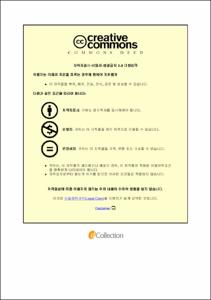호텔종사원의 마음챙김이 직무열의, 직무소진, 고객지향성 및 이직의도에 미치는 영향
- Alternative Title
- The Effects of Hotel Employees' Mindfulness on Job Engagement, Job Burnout, Customer Orientation and Turnover Intention
- Abstract
- Against the backdrop of the present-day situations where human resource management is becoming critical in the hospitality industry, this study was conducted to help human resource management of hotel employees by examining the interrelationship among mindfulness, job engagement, job burnout, customer orientation, and turnover intention of hotel employees.
This survey was conducted from September 1, 2020, to December 31, 2020 in compliance with the quarantine rules given due the COVID-19 situation. Respondents were selected for employees of luxury hotels and resorts in Busan, Ulsan, and Gyeongsangnam-do as a convenience sampling method.
Out of the 450 questionnaires distributed, 420 were returned, and 385 were used for the final empirical study, excluding 35 with insufficient responses.
A frequency analysis was performed for general characterization of the samples; SPSS 25.0 statistical packages were used, and the structural equation model was applied to verify the hypotheses of this study. Results revealed the following: First, mindfulness was found to have a positive effect on job engagement, and thus, H1 was accepted. Second, it was found that mindfulness had a negative effect on job burnout, and thus, H2 was accepted. Third, job engagement was found to have a positive effect on customer orientation, and thus, H3 was accepted. Fourth, job engagement was found to have a negative effect on turnover intention, and thus, H4 was accepted. Fifth, it was found that job burnout did not have a negative effect on customer orientation, and thus, H5 was rejected. However, it was found that the relationship between job burnout and customer orientation was significantly dependent upon gender, as men were significantly affected while women were not. Finally, it was found that job burnout had a positive effect on turnover intention, and thus, H6 was accepted. The theoretical and practical implications related to the results of this study were presented.
Keywords: Mindfulness, Job Engagement, Job Burnout, Customer-orientation, Turnover Intention
- Issued Date
- 2021
- Awarded Date
- 2021. 8
- Type
- Dissertation
- Publisher
- 부경대학교
- Affiliation
- 부경대학교 대학원
- Department
- 대학원 경영컨설팅협동과정
- Advisor
- 전재균
- Table Of Contents
- 1.서 론 1
1.연구배경 및 목적 1
1)연구배경 1
2)연구목적 6
2.연구의 구성 8
2.이론적 배경 10
1.마음챙김 10
2.직무열의 15
3.직무소진 17
4.고객지향성 20
5.이직의도 22
3.연구방법 24
1.연구 모형 24
2.연구가설의 설정 25
1)마음챙김과 직무열의 25
2)마음챙김과 직무소진 27
3)직무열의와 고객지향성 29
4)직무열의와 이직의도 30
5)직무소진과 고객지향성 32
6)직무소진과 이직의도 34
3.변수의 조작적 정의 및 설문 구성 36
1)변수의 조작적 정의 36
2)설문구성 36
4.자료의 수집 및 분석방법 39
4.실증분석 40
1.표본의 특성 40
2.측정도구의 신뢰성 및 타당성 분석 41
3.가설검증 47
4.조절효과 검증 49
5.매개효과 검증 51
5.결 론 53
1.연구결과의 요약 53
2.연구의 시사점 56
3.연구의 한계점 및 향후 연구방향 60
- Degree
- Doctor
- Files in This Item:
-
-
Download
 호텔종사원의 마음챙김이 직무열의, 직무소진, 고객지향성 및 이직의도에 미치는 영향.pdf
기타 데이터 / 857.32 kB / Adobe PDF
호텔종사원의 마음챙김이 직무열의, 직무소진, 고객지향성 및 이직의도에 미치는 영향.pdf
기타 데이터 / 857.32 kB / Adobe PDF
-
Items in Repository are protected by copyright, with all rights reserved, unless otherwise indicated.